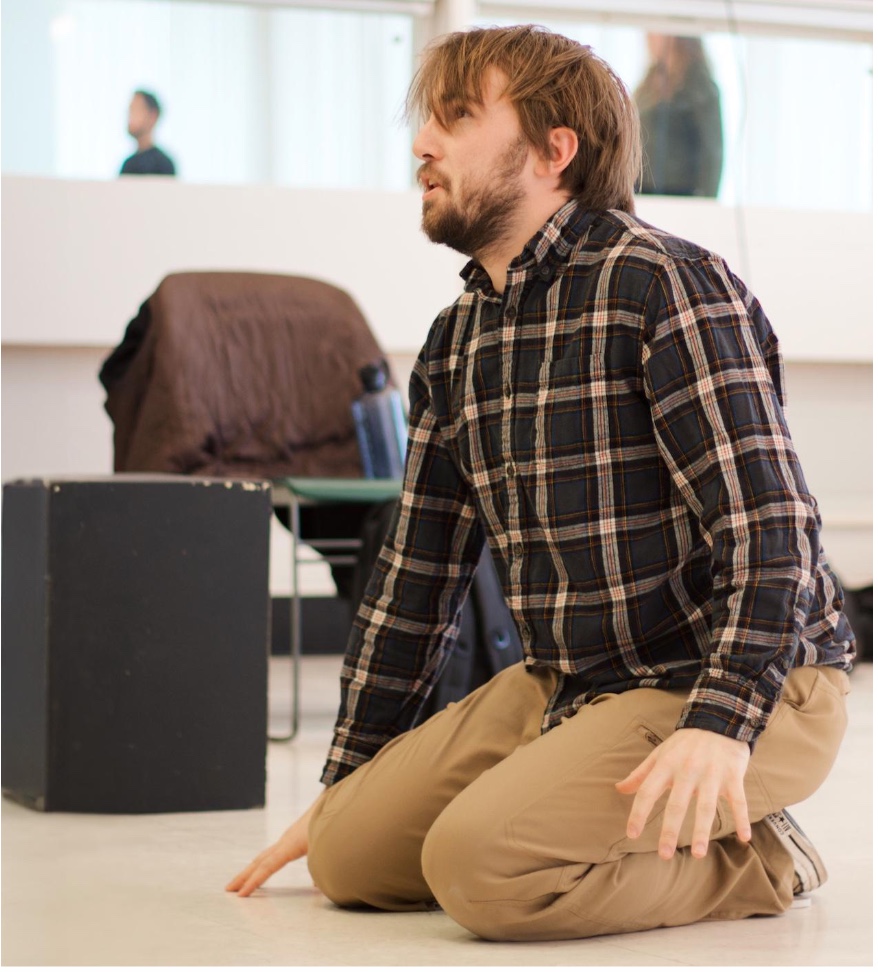by Mike Telin

Based on the book by Tom Philpott, the two-act, 80-minute chamber opera tells the true story of Jim Thompson, the longest-held prisoner of war in U.S. military history, as he tries to re-assimilate into American life after spending nine years behind enemy lines in Vietnam.
“Glory Denied is undeniably one of the most performed American operas of our time,” guest stage director Kathryn Frady said by telephone. “Companies everywhere are doing it.”
Frady, who is the founding and executive artistic director of Marble City Opera, said that she often hears the work’s arias during auditions. “They are just beautiful and very moving, particularly ‘My Darling Jim’ (sung by young Alyce while she’s writing a letter to her husband just before he is captured) and ‘After You Hear Me Out’ (sung by the older Alyce after she has moved on with her life). So when I was approached about directing it, I thought, why not, it’s an opportunity to get to know the piece better, and CIM has a wonderful opera program and great students.”
The double cast includes Connor Vrooman and Jingdian Zhou as Younger Jim Thompson, Emma Potts and Ella Sobkowicz as Younger Alyce, and Kiana Lilly and Ruby Pine as Older Alyce. Baritone and CIM alumnus Armando Contreras will sing the role of Older Jim Thompson at both performances. The production also includes a nine-member instrumental ensemble, with guest conductor Kamna Gupta on the podium.
Glory Denied presents audiences with a difficult storyline, but at the same time Frady finds it to be extremely relevant and relatable. “Yes, Jim is going to the Vietnam War, but it’s not just relatable to veterans, because the story gives you insight into both Alyce and Jim during the younger part of their relationship. And during the older part of their relationship, you really see how the war breaks them apart.”
Frady said that she and the cast have spent time in rehearsal discussing what Jim Thompson actually went through during his captivity. “He’s in this tiny box for months by himself. And the whole time he’s in that box, he talks himself out of losing his mind by building a house brick by brick. So when you really start to think about that, you realize how strong and resilient he was to be able to survive that for nine years.”
Musically, Cipullo’s score is at times quite dense, which Frady has countered by creating minimalist staging — every character has their own space on the stage. “Each of them has their own monodrama in a sense, all happening simultaneously. What I find interesting about the piece is in the ensemble moments. They may not be portraying their character — maybe they’re a soldier reading a letter from the U.S. Government. In those moments, which are typically the most challenging musically, the staging is more stationary. Whereas in the beautiful arias the characters are telling the story dynamically, as if it’s happening in the moment.”
Frady noted that although the opera is in two acts, it will be performed without intermission. “Another thing I should note is that we are doing what Tom calls the Nashville ending. I was inspired by a production that John Hoomes did at Opera Birmingham, where ‘My Darling Jim’ was moved to the end of the opera. I spoke with Tom and he agreed to let us do that version.”
What does Frady hope people will take away from the opera? “I really hope that people leave with a sense of the sacrifice that not just Jim, but both he and Alyce made for the country. And also how the power of hope can carry you through hard times. But people should go because it’s not opera like they’re used to.”
I concluded our conversation with a philosophical question — what part of the glory was denied? “Wow, that’s a beautiful question,” Frady said. “Perhaps it’s the life that you give up which is what has been denied.”
Photo by Kiana Lilly
Published on ClevelandClassical.com January 23, 2024.
Click here for a printable copy of this article


